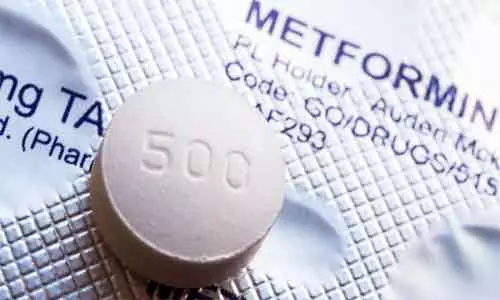Single dose of metformin reduces hepatic venous pressure in portal hypertension: Study

Portal hypertension is the main determinant of clinical decompensation in patients with liver cirrhosis. In preclinical data metformin lowers portal pressure, but there are no clinical data for this beneficial effect.
One study recently published in the Alimentary Pharmacology and Therapeutics Journal highlighted that a single oral metformin dose acutely reduces hepatic venous pressure gradient (HVPG) in patients with portal hypertension without affecting systemic or liver hemodynamics or inflammatory biomarkers.
Nikolaj Rittig and associates from the Department and Laboratories of Diabetes and Hormone diseases, Aarhus University Hospital, Aarhus, Denmark aimed to investigate the acute effects of metformin on hepatic venous pressure gradient (HVPG) and liver perfusion.
In a randomised, double-blinded study design, the authors investigated a total of 32 patients with cirrhosis before and 90 minutes after ingestion of 1000-mg metformin (n = 16) or placebo (n = 16). Liver vein catherisation was performed to evaluate hepatic venous pressure gradient and indocyanine green (ICG) infusion for investigation of hepatic blood flow.
The following findings were identified-
- The mean relative change in hepatic venous pressure gradient was −16% (95% CI: −28% to −4%) in the metformin group compared with 4% (95% CI: −6% to 14%) in the placebo group (time × group interaction, P = 0.008).
- In patients with baseline hepatic venous pressure gradient ≥12 mm Hg clinically significant improvements in hepatic venous pressure gradient (HVPG <12 mm Hg or a >20% reduction in HVPG) were observed in 46% (6/13) of metformin-treated and in 8% (1/13) of placebo-treated patients (P = 0.07).
- There were no changes or differences in systemic blood pressure, heart rate, hepatic plasma and blood flow, hepatic indocyanine green clearance, hepatic O2 uptake or inflammation markers between groups.
Hence, the authors concluded that "a single oral metformin dose acutely reduces HVPG in patients with portal hypertension without affecting systemic or liver hemodynamics or inflammatory biomarkers."
This offers a promising perspective of a safe and inexpensive treatment option that should be investigated in larger-scale clinical studies with long-term outcomes in patients with cirrhosis and portal hypertension, they further added.
https://doi.org/10.1111/apt.16460